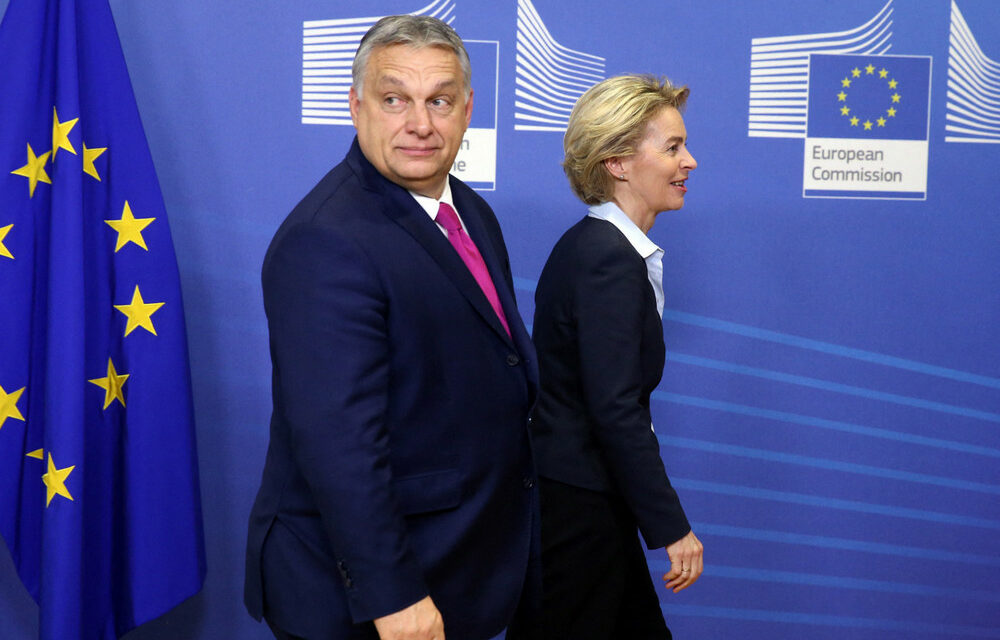Let us now examine the idea concerning the democracy of organizational decision-making, the plans for qualified majority voting!
Today, this voting method is the most frequently used form in the Council (Council of Ministers), which is used when the Council makes decisions in the ordinary legislative procedure, also known as the co-decision procedure. It should be known that around 80-85% of EU legislation is adopted using this procedure, i.e. this is the basic way of EU legislation. The Council decides by qualified majority vote, except in cases in which the contracts stipulate otherwise - indeed, this includes, for example, energy, taxation or some issues affecting the operation of social life.
Fulfillment of a double majority
Qualified majority in Council decision-making means the fulfillment of a "double majority", i.e., for example, when the Council votes on the Commission's proposal, it must fulfill two basic conditions: firstly, that 55% of the member states (in practice 16 out of 28 member states) support the proposal votes in favor of, as well as the important criterion that the member states supporting the proposal represent at least 65% of the total population of the EU. This is also known as as a "double majority" rule.
In such votes, the blocking minority must consist of at least four member states of the Council, representing more than 35% of the population of the Union (by definition, the demographic clause poses the real difficulty here). Of course, there are special cases, for example, if a member state voluntarily withdraws from decision-making on a given policy topic, then the decision must be considered accepted if 55% of the voting member states, representing at least 65% of the participating population, vote in favor of it. It is also important that in the case of qualified majority voting, abstention is considered a vote against.
Large countries and countries with the lowest population are doing well
The introduction of the double majority principle stirred up serious debates from the beginning, and the real basis of the debate is the seemingly irrefutable mathematical nature of the problem. Lionel Penrose, one of the famous British researchers of game theory, when he created the mathematical theory of voting weight, concluded already in the 1950s that a two-factor majority voting system based on a population number and a country number is the most effective in decision-making for the large population and the lowest population prefers actors (two quick examples: Germany and Luxembourg!).
Changes are always for political purposes
Let us not be under any illusions: just like the current "reform", the previous changes in EU voting methods were also fundamentally political: by the beginning of the 2000s, following the series of enlargements of member states (the accession of the "periphery"), the previous "weighting" ” system would have favored small and medium-sized countries, which the big ones no longer liked. Thus, the birth of the current system - which was mainly accompanied by the slogan of efficiency - was primarily intended to reduce the formal weight of medium-sized countries and their influence - to a much greater extent than that of very small member states. The currently planned expansion of qualified majority voting would tilt the balance even more in the direction of the larger countries, core Europe, but to translate this into the language of politics: the clear goal is to suppress the "Visegradians" who are considered to be recalcitrant, and in the meantime the small ones may become somewhat stronger, for example the influence of the Benelux dwarf state (joking for a moment the planned move of the Commission: do all saints really have their hands bent towards them?).
A clear goal is to suppress the "Visegradians" who are considered recalcitrant
According to the Commission's plans, the use of qualified majority voting in the Union would be expanded to additional fields or in foreign policy, in general, the powers of individual member states would further decrease, since more regulated areas would be included in this controversial decision-making construction. The political weight of medium-sized countries (including several Eastern and Central European countries) would be reduced - it would be almost impossible for these countries to form a blocking minority in the future without the United Kingdom, which is more sensitive to sovereignty issues, if we assume that the current political balance of power and power balances will remain. At the same time: nothing blooms forever, according to Cicero's wisdom.
A specific system of the tyranny of the majority is now floating before our eyes, where, although there would be a higher probability of the adoption of a Council position and the gathering of a voting majority, this would further deepen the political antagonisms, and ultimately the democratic functioning of the Union as an institution and its legitimacy would be undermined - and the medium, but especially long-term consequences of this in today's, already uncertain, crisis-stricken times: unforeseeable...
The goal of completely breaking the influence of the eastern member states and significantly reducing their weight may lead to the complete disintegration of the current status quo, and one of the consequences of the abolition of the veto right may be that the majority would thus be able to exert even greater influence on the internal politics of a member state. In a certain sense, this could mean the end of the sovereignty of the member states.
Source: alaptorvenyblog.hu
Photo: Francois Walschaerts / AFP












